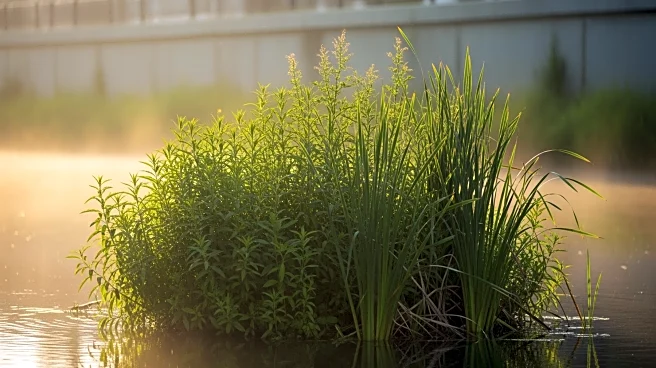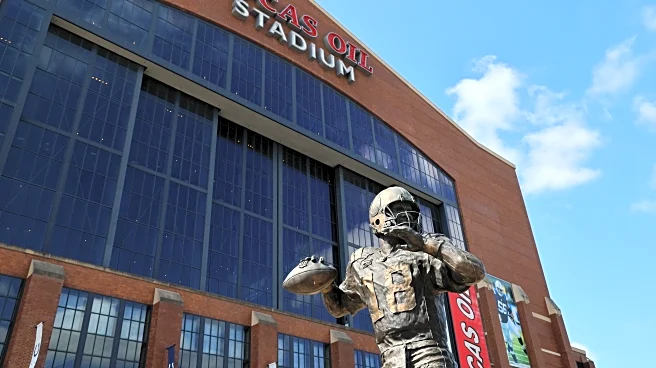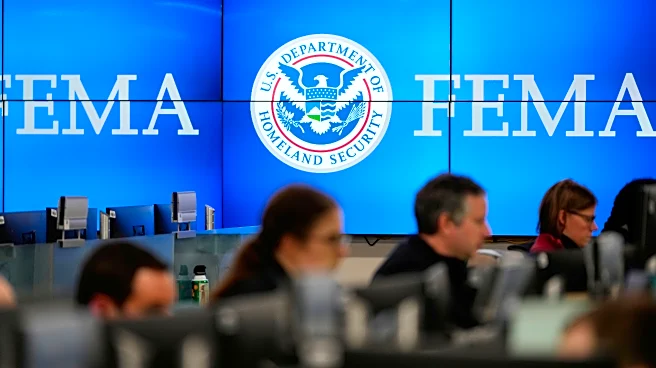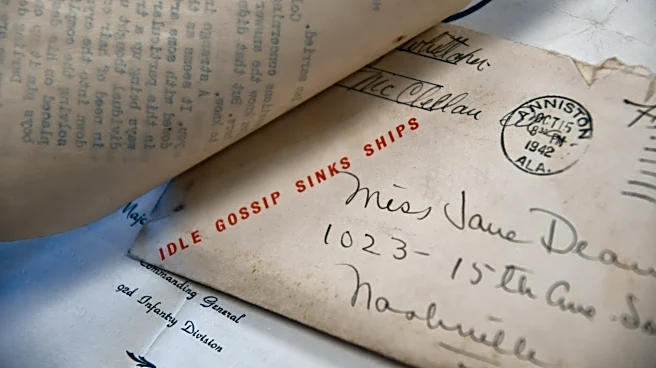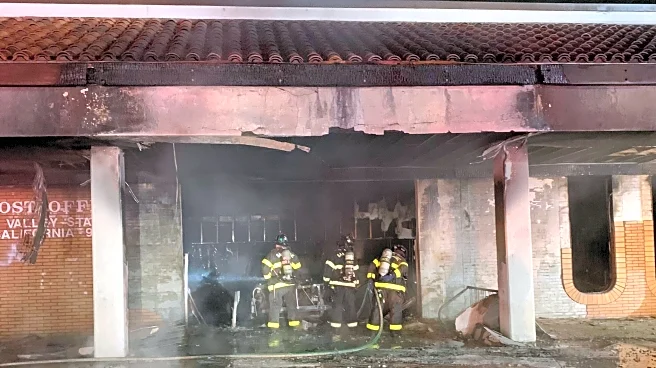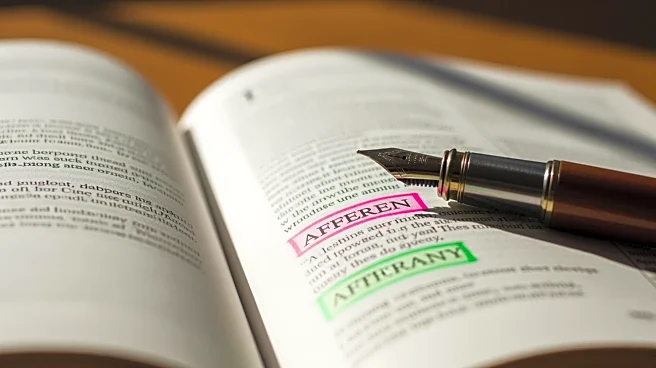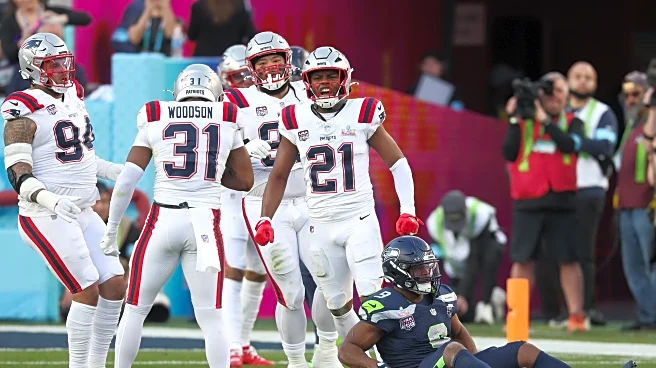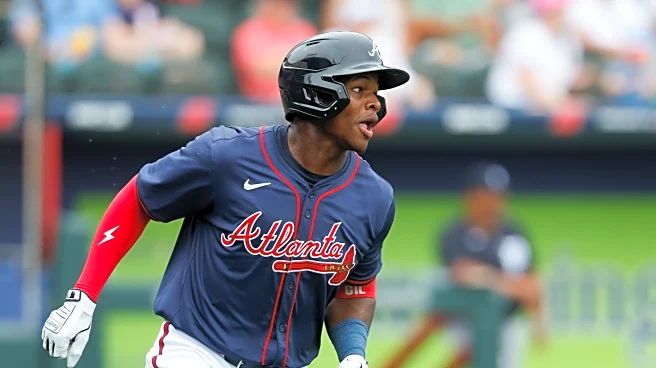What's Happening?
Doug Rosenberg, a guerrilla gardener and artist, has installed a pop-up wetland in the Los Angeles River, aiming to demonstrate the potential for small-scale ecological restoration in urban environments.
Rosenberg's project involves arranging rocks in the river to trap sediment and foster a micro-ecosystem, creating a 10-by-20-foot green island. Despite the artistic and environmental intentions, the installation is illegal under federal regulations, which protect the river as a navigable waterway. Rosenberg's actions have sparked discussions about the role of guerrilla gardening in urban spaces, highlighting both the potential benefits and risks associated with unauthorized ecological interventions.
Why It's Important?
The pop-up wetland project underscores the growing interest in urban ecological restoration and the challenges faced by grassroots environmental efforts. While Rosenberg's initiative highlights the potential for low-tech solutions to enhance urban biodiversity, it also raises concerns about the legality and safety of such interventions. The project has sparked debate among environmental advocates and city officials about the balance between ecological restoration and flood management. The broader significance lies in the potential for guerrilla gardening to inspire community engagement and challenge traditional approaches to urban planning and environmental conservation.
What's Next?
The future of Rosenberg's wetland project remains uncertain, as it faces potential removal by authorities due to its unauthorized status. However, the initiative has already sparked interest and engagement from the public, with some individuals joining Rosenberg in his efforts. The project may influence future discussions on urban ecological restoration, potentially encouraging more collaborative approaches between guerrilla gardeners and city planners. As the city continues to explore ways to revitalize the Los Angeles River, Rosenberg's project could serve as a catalyst for broader community involvement and innovative environmental solutions.
Beyond the Headlines
Rosenberg's project highlights the ethical and legal complexities of guerrilla gardening, raising questions about the rights to public spaces and the responsibilities of individuals in environmental conservation. The initiative challenges traditional notions of urban development and encourages a reevaluation of how cities can integrate natural elements into their landscapes. The project also reflects a broader cultural shift towards grassroots activism and the desire for individuals to take direct action in addressing environmental issues, potentially influencing future policy and community-driven ecological efforts.
